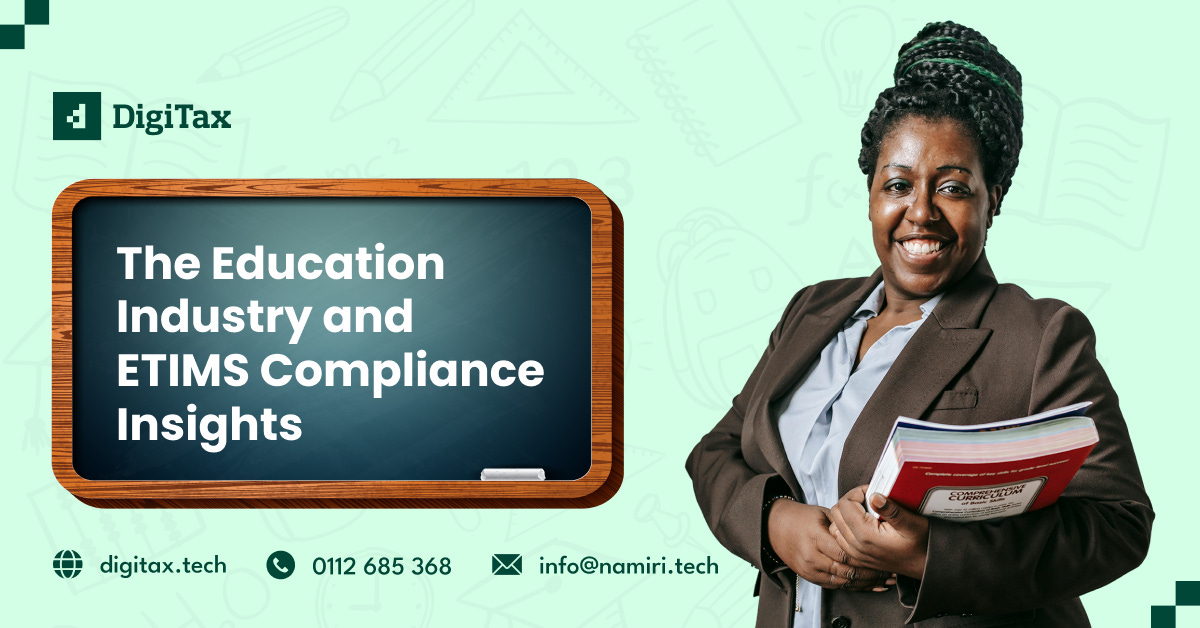The Education Industry and eTIMS Compliance Insights
eTIMS Compliance Insights For Schools
Introduction
In this week's newsletter, we delve into frequently asked questions surrounding the intersection of education institutions, tax regulations, and electronic invoicing systems. Specifically, we focus on the complexities faced by tax-exempt church-owned schools, such as Catholic or ACK institutions, in navigating the Electronic Tax Invoice Management System (eTIMS).
From understanding the implications of their tax-exempt status to managing installment payments from parents, we address key queries to ensure compliance and efficiency.
We hope this sheds light into the intricacies of eTIMS and its impact on the education industry.
Q1: How does the tax-exempt status of church-owned schools, such as Catholic or ACK institutions, impact their use of eTIMS (Electronic Tax Invoice Monitoring System)?
First, the church-owned schools need to confirm their “exemption” tax status. This can be confirmed by express exemption by the tax laws or an exemption certificate. Either of the two should clearly stipulate the types of exemptions they enjoy.
If the church-owned school is exempt from income tax, they will not be required to obtain eTIMS compliant invoices for their purchases.
However, their customers might require eTIMS compliant invoices from the church-owned schools to deduct that expense if it is a business expense.
Q2: Does issuing invoices before receiving payment affect the school's remittance process at the end of the year?
No. However, the school needs to ensure it maintains a proper reconciliation of all invoices raised against payments made.
Q3: When parents pay invoices in installments, how is this installment payment information captured?
The school can decide to invoice per installment payment. Alternatively, the school can raise the full invoice and maintain a reconciliation against payments made by the parents.
Q5: If an invoice lacks eTIMS and personal details, will it still be accepted as an eTIMS invoice?
Based on the Tax Procedures (Electronic Invoicing) Regulations, 2024, the following need to be included in an eTIMS compliant invoice:
The words “TAX INVOICE”;
The name, address, and PIN (Personal Identification Number) of the supplier;
The name, address, and PIN (if any) of the buyer/purchaser;
The serial number of the tax invoice;
The date and time the invoice was issued, and the date and time which the supply was made, if it is different from the date the tax invoice was issued;
The description of the goods or services supplied including the quantity of the goods or the type of services;
The details of any discount allowed at the time of supply;
The total amount payable for the supply; and
The tax rate and total amount of tax charged
It is important to ensure that your invoice contains the above for it to be accepted as an eTIMS invoice.
Q6: Is it permissible to issue a proforma invoice before receiving payment, and must it be processed through eTIMS?
Yes you can issue a proforma outside eTIMS
Also, should an invoice and receipt be issued after payment? Yes
Found this helpful? Here’s how we can assist you!
Compliance with the latest eTIMS compliance requirements is highly recommended for the relevant entities to align with the evolving regulatory landscape.
Our team is ready and eager to assist with the seamless integration and adoption of eTIMS as an approved eTIMS integrator ensuring a smooth transition for you and your institution enabling you to meet the latest legal requirements.
Contact us today for further assistance. Email us at info@namiri.tech or call or Whatsapp 0112685368.


